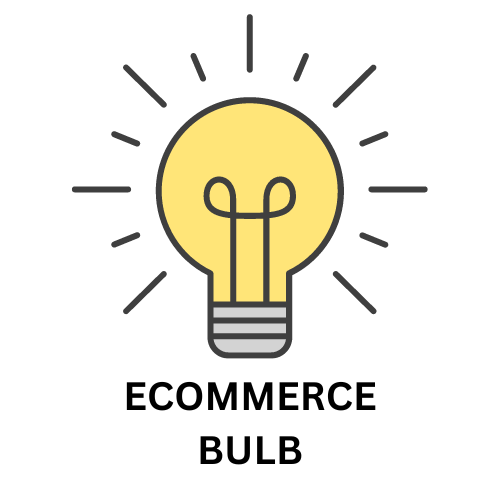Digital era needs artists with digital capabilities, if you’re musician you can’t settle for traditional ways, you can sell your music on Sellfy and other platforms and keep your earnings and royalties. We’ll discuss here the top platforms to sell music online, the differences, pros and cons.
How to Sell your Music on Sellfy?
Selling music on Sellfy is a straightforward process. Here’s a quick guide:
- Create an account: Sign up for a Sellfy account.
- Upload your music: Add your music files (MP3, WAV, etc.).
- Set product details: Choose a title, description, price, and album art.
- Configure settings: Set up payment options and shipping (if applicable).
- Promote your music: Share your music on social media, your website, or through email marketing.
Sellfy provides tools to help you manage your music sales, track downloads, and communicate with fans.
Further Readings about Sellfy itself: Top 6 Sellfy Reviews

how do I Sell my Music on Sellfy – Detailed Guide

Here’s a little bit guide on how to sell music on Sellfy:
1. Create a Sellfy Account:
- Sign up for a free or paid Sellfy account.
2. Upload Your Music:
- Add your music files in the desired format (e.g., MP3, WAV).
- You can upload individual tracks or entire albums.
3. Set Product Details:
- Title and description: Choose a catchy title and provide a detailed description of your music.
- Pricing: Set the price for your tracks or albums. Consider factors like the quality of your music and your target audience.
- Album art: Upload a high-quality album cover image.
4. Configure Settings:
- Payment options: Choose the payment methods you want to accept.
- Shipping (if applicable): If you’re selling physical products (e.g., CDs), set up shipping options and rates.
- Tax settings: Configure tax rates for your location.
5. Promote Your Music:
- Social media: Share your music on platforms like Facebook, Instagram, and Twitter.
- Email marketing: Build an email list and send promotional emails to your subscribers.
- Collaborate with other artists: Partner with other musicians to cross-promote your music.
- Utilize Sellfy’s marketing tools: Use Sellfy’s built-in marketing features to promote your music.
6. Engage with Fans:
- Respond to comments and messages: Interact with your fans and build a community around your music.
- Offer exclusive content: Provide exclusive downloads or behind-the-scenes content for your biggest fans.

What is the Best Platform to Sell Music Online?

Selling music online has become increasingly accessible with a variety of platforms catering to different needs. Here are some of the best platforms to sell music online:
- Bandcamp:
- Best For: Independent artists.
- Features: Artists can set their prices, offer pay-what-you-want options, sell physical merchandise, and more. Bandcamp also allows fans to directly support artists, taking a 10-15% commission on sales.
- Spotify (via DistroKid, TuneCore, etc.):
- Best For: Streaming with monetization.
- Features: Spotify is one of the largest music streaming platforms. Artists must use distribution services like DistroKid or TuneCore to get their music on Spotify. These services typically charge a fee and distribute music to multiple platforms, including Apple Music, Amazon Music, and more.
- Apple Music/iTunes:
- Best For: Selling to a wide audience.
- Features: iTunes allows artists to sell their music directly. Similar to Spotify, artists typically use a distribution service to get their music on iTunes and Apple Music.
- Amazon Music:
- Best For: Wide distribution with a massive audience.
- Features: Artists can sell their music as MP3 downloads or stream it via Amazon Music Unlimited. Again, a distribution service is needed to get your music on Amazon.
- SoundCloud:
- Best For: Independent artists and smaller audiences.
- Features: SoundCloud offers a platform where artists can upload and share their music for free or through SoundCloud Premier (a monetization option). They also offer distribution to other streaming services.
- CD Baby:
- Best For: Artists looking for wide distribution and additional services.
- Features: CD Baby offers global distribution to all major platforms (Spotify, Apple Music, etc.), as well as physical CD distribution. They also offer additional services like music publishing administration.
- ReverbNation:
- Best For: Indie artists seeking promotion tools.
- Features: ReverbNation provides a platform for selling music, as well as tools for promotion, distribution, and fan engagement.
- Patreon:
- Best For: Artists with a dedicated fanbase.
- Features: Patreon allows artists to offer exclusive content to subscribers for a monthly fee. Musicians can use Patreon to provide exclusive music, early releases, and other perks to their fans.
- Gumroad:
- Best For: Direct sales and bundles.
- Features: Gumroad allows you to sell digital products directly to your fans, including music, videos, and more. It’s a good option for artists who want to sell albums, singles, or bundles without going through a traditional distributor.
- YouTube Music:
- Best For: Video content with monetization options.
- Features: YouTube Music allows you to monetize your music videos and get paid through ads. It’s also a platform where you can build a fanbase by regularly uploading content.
These platforms cater to different aspects of music distribution, so choosing the right one depends on your goals, whether it’s direct sales, streaming revenue, or fan engagement.

best ecommerce platform to sell music on my website
If you want to sell music directly from your own website, you’ll need an eCommerce platform that supports digital downloads, customizable storefronts, and easy integration. Here are some of the best eCommerce platforms for selling music on your website:
1. Sellfy
- Best For: Simplicity and ease of use.
- Features: Sellfy is designed for selling digital products like music. It’s easy to set up, offers built-in marketing tools, and supports PayPal and Stripe for payments. Sellfy also provides a customizable storefront, so you can match your brand’s aesthetic.
2. Shopify
- Best For: Comprehensive eCommerce solution.
- Features: Shopify is a versatile platform that allows you to sell both physical and digital products. It offers customizable themes, a wide range of plugins, and a user-friendly interface. You can use apps like “Single Music” to manage and sell digital downloads of your music.
3. WooCommerce (WordPress)
- Best For: Flexibility and control.
- Features: WooCommerce is a free plugin for WordPress that turns your site into an eCommerce store. It’s highly customizable and supports digital downloads, making it a great choice if you want complete control over your site’s design and functionality.
4. BigCommerce
- Best For: Scalability.
- Features: BigCommerce offers a robust platform with powerful built-in features for selling both digital and physical products. It supports various payment gateways, SEO tools, and has extensive customization options.
5. Squarespace
- Best For: All-in-one solution with beautiful design.
- Features: Squarespace is known for its beautiful templates and ease of use. It includes eCommerce capabilities that allow you to sell digital music downloads directly from your website. It’s ideal if you want a visually appealing site without much technical hassle.
6. Bandzoogle
- Best For: Musicians and bands.
- Features: Bandzoogle is a website builder specifically designed for musicians. It includes eCommerce features like selling digital downloads, physical merchandise, and tickets. Bandzoogle also has built-in tools for fan engagement and music promotion.
7. Gumroad
- Best For: Selling digital products directly.
- Features: Gumroad is a straightforward platform that allows you to sell digital products, including music, directly from your website or a Gumroad page. It offers a simple setup process and is ideal for artists looking to sell music without managing a full eCommerce store.
8. Ecwid
- Best For: Adding a store to an existing site.
- Features: Ecwid is an eCommerce plugin that can be added to any existing website. It supports digital downloads, integrates with various payment gateways, and offers a mobile-friendly shopping experience. It’s a good option if you already have a website and just want to add a store.
9. Easy Digital Downloads (WordPress)
- Best For: Digital product-focused stores.
- Features: Easy Digital Downloads is a WordPress plugin specifically designed for selling digital products like music. It’s highly customizable, supports various payment gateways, and offers a streamlined checkout process.
10. Weebly
- Best For: Easy setup and use.
- Features: Weebly offers an easy-to-use platform with drag-and-drop functionality. It supports digital downloads and has various eCommerce features, making it a good option for musicians who want a simple and straightforward setup.
Each platform offers different advantages, so the best choice depends on your specific needs, such as design flexibility, ease of use, or the level of control you want over your eCommerce store.

Best Places to Sell Music Online – On my Website

While platforms like Sellfy, Bandcamp, and Beatport are popular choices for selling music online, you can also sell directly from your own website. This gives you more control over your brand and customer experience.
Here’s how you can sell music on your website:
- Choose a platform: Select a website builder or e-commerce platform like Sellfy, Shopify, or Wix.
- Integrate a payment gateway: Connect a payment gateway like Stripe or PayPal to accept payments.
- Create a music store: Design a dedicated section or page for your music.
- Upload your music: Add your music files (MP3, WAV, etc.) to your website.
- Set pricing and availability: Determine the price for your tracks or albums.
- Promote your music: Share your music on social media and through email marketing.
By selling music directly from your website, you can:
- Maintain full control: Have complete control over your brand and customer experience.
- Customize your store: Design your store to match your unique style.
- Earn more revenue: Keep a higher percentage of your sales after fees.
However, selling music directly from your website might require more technical expertise and marketing efforts.




Leave a Reply